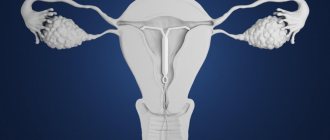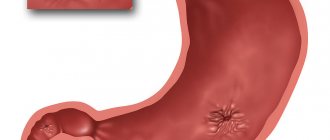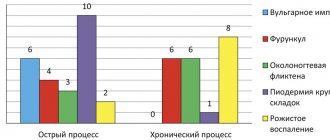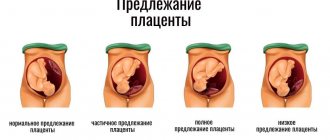Hormonal therapy for menopause. 4 questions for a gynecologist-endocrinologist
If you still have questions, you can ask them using the Doctis service.
1. I am 46 years old. A year since menopause began. I endure menopause very hard: hot flashes endlessly, libido is at zero, I have gained 10 extra kilos. Moreover, she became irritable and tearful - worse than during pregnancy. My relationship with my husband is falling apart at the seams. So, I’m thinking, maybe I should start taking hormones? They say it's easier with them. This is true?
Menopausal hormone therapy (MHT) is an internationally recognized method of treating severe menopause and preventing its manifestations. By restoring the balance of hormones, you can significantly improve a woman’s physical and mental condition and protect her from many risks associated with menopause. And these are not only the symptoms you described. Indeed, during menopause, more serious problems often arise: osteoporosis - fragility of bone tissue, leading to fractures; atherosclerosis and associated memory loss, as well as hypertension with the risk of strokes and heart attacks. Almost all women in menopause experience urogenital disorders to one degree or another (frequent urination, atrophy of the vaginal mucosa: dryness and itching, urinary incontinence).
Various psycho-emotional changes often appear, such as depression and sleep disturbances.
In addition, doctors are well aware of cases of pathological menopause, in which “hot flashes” occur not up to 10 times a day, but more than 25-30 times. Many also develop hypertension during this period. In all such cases, MHT can help. However, the woman’s desire and the presence of her symptoms alone are not enough to prescribe such therapy. Female hormone preparations tend to enhance blood clotting, so they have many contraindications. Before prescribing a hormonal drug, gynecologists-endocrinologists carefully examine patients. And self-administration of such medications should be completely excluded.
You need to undergo a thorough examination: do general and biochemical blood tests, a coagulogram; perform an ultrasound of the vessels of the lower extremities and pelvic organs, the abdominal cavity; submit a gynecological smear for oncocytology; It is advisable to conduct a mammogram to examine hormone levels.
2. I am 54 years old. 2 years since menopause arrived. It doesn’t cause me any trouble, not even hot flashes. Therefore, I was very surprised when the therapist recommended that I ask my gynecologist about hormones. They say that densitometry showed a pronounced decrease in bone density. Maybe it’s better for me to just take vitamins and calcium?
Some women with menopause do not have any obvious manifestations from the autonomic or central nervous system. Accordingly, they do not suffer from hot flashes and depression. But after 50 years, cardiovascular diseases and osteoporosis, as well as urogenital disorders, unfortunately, threaten many. After all, estrogens prevent cholesterol from settling in the vessels, and when estrogen levels drop during perimenopausal age, women develop dyslipidemia (hardening of artery walls is the main cause of atherosclerosis). And this can increase the risk of cardiovascular accidents: heart attacks and strokes. As for osteoporosis, since without female hormones it is difficult for calcium to penetrate into bone tissue, bone fragility also increases after menopause. And even taking calcium along with vitamin D, alas, cannot change this. Either hormone replacement therapy or other special medications, which are also prescribed by a doctor, can protect against impending osteoporosis.
3. Now I’ve reached menopause... I can bear it, thank God, more or less. But the reflection in the mirror is not pleasing. The waist is spreading wider, the skin has become dry, and there are more and more wrinkles. And I have a young husband. My cosmetologist advised me to think about hormone therapy. I would like to know whether these drugs really have anti-aging properties or not? And by the way, won’t I gain even more weight due to hormones?
Estrogen will undoubtedly help improve your appearance! And the fact that taking medications for MHT promotes weight gain is a myth. On the contrary, if the extra pounds are caused not by overeating, but by age-related hormonal changes, then taking them will help you get back into shape. After all, when a woman’s ovaries, which synthesize estrogens, stop functioning during menopause, then to compensate for this deficiency, subcutaneous fatty tissue begins to produce some female hormones. This is precisely what explains weight gain “not from cutlets, but from years.” Although, to understand the mechanism of excess weight, you need to undergo other studies. However, I would like to warn against thoughtless, unauthorized prescribing of such drugs to oneself. It is very dangerous.
MHT is contraindicated in:
— deep vein thrombosis, thrombophlebitis and even severe varicose veins;
– a past history of acute cerebrovascular accident or myocardial infarction;
- any tumors (even benign);
- severe endometriosis;
– severe liver and kidney diseases.
4. I heard that hormones, especially if taken for a long time, can increase the risk of cancer. This is true?
Estrogens themselves do not cause cancer, but if there are already tumor cells in the body, hormonal therapy provokes their rapid growth. Therefore, even if a woman has benign formations in her body, hormonal therapy should be taken with caution, and it is better to abstain from it altogether.
At one time it was believed that long-term (more than 7 years) use of MHT drugs could provoke the development of cancer of the reproductive organs. Currently, scientists have revised their views and abolished these restrictions. However, in Russia they are still wary of long-term use of hormones. We consider it optimal to take them at the age of 45-60 years for 5-10 years in a row. The best time to start taking hormones is the beginning of menopause, or at least no later than 2-3 years after your last menstruation.
When taking MHT drugs, it is necessary to undergo regular testing. And most importantly, be under the supervision of a specialist. Every 3 months - take a test for blood clotting, twice a year - ultrasound of the pelvic organs, annually - mammography and oncocytology of the cervix, ultrasound of the abdominal cavity.
Will hormones help avoid menopause?
Menopause occurs for every woman, regardless of her desire, lifestyle or health status. In essence, menopause is a restructuring of the body, a decrease in the production of female hormones estrogen and a change in the entire hormonal balance.
Taking hormones is not a treatment for menopause, not a prevention, but a delivery of estrogens to the body from the outside when it can no longer produce them on its own.
This is why women taking oral contraceptives with estrogens do not feel the first symptoms of menopause and believe that contraceptives delay its onset. In reality this is not the case. Simply regular hormonal support allows the body to work as before, but at the expense of estrogens contained in the tablets. Over time, the deficiency of female sex hormones increases and contraceptives will no longer help cope with the manifestations of menopause.
It is important to remember that to combat hot flashes and other manifestations of menopause, you should take other hormonal drugs rather than oral contraceptives. Which? They should be recommended by a doctor after examination.
Myth two: “MHT is unnatural”
You could argue that our grandmothers had no idea about MHT and tried to cope with the symptoms on their own, considering it an inevitable consequence of their age. Today's statistics show that 85% of middle-aged and older women in Russia are the main breadwinners in the family. The achieved status, responsibility for the future of children who are not yet fully grown, material aspects and public opinion often do not allow a woman not to work when she reaches retirement age. Meanwhile, the requirements for the professionalism of workers in the modern economy are increasing. In addition, looking good and outwardly corresponding to the prestige of the position held at any age is also a requirement of our time.
Myth seventh: “I have diseases of the stomach, intestines and liver, so MHT is contraindicated for me”
None of the modern MHT drugs has an irritating effect on the mucous membrane of the gastrointestinal tract (GIT) or a toxic effect on the liver. For patients who are concerned about the condition of their gastrointestinal tract and for whom taking tablet forms is undesirable for medical reasons, companies produce special forms of MHT drugs for topical use in the form of skin gels, patches, and nasal sprays. These forms are absorbed by the body through the skin, bypassing the gastrointestinal tract and excluding primary transport through the liver, easing the workload on these organs.
Hormone analysis
We will not go into detail about the structure of a woman’s hormonal system. You should know only one thing - with the onset of menopause, the production of estrogen in the female body decreases. And to compensate for this decrease, the pituitary gland begins to produce increased levels of follicle-stimulating hormone - FSH. Natural estrogen is reduced, the amount of FSH is increased, which contributes to increased production of another LH hormone - luteinizing hormone. There comes a time when a woman can no longer conceive.
So, in order to understand whether an existing menstrual cycle disorder is a harbinger of menopause or is it a consequence of some disease, a woman takes a blood test for the following types of hormones:
- FSH content - a low FSH rate (10 units) is typical for women of reproductive age. If FSH reaches 20 units, the woman has entered premenopause. The normal FSH level in the blood when approaching menopause is 30-40 units. A year after the cessation of menstruation, this number increases to 125 units.
- Estradiol content. This is the main hormone among estrogens, responsible for the strength of bones, the amount of fat, and the elasticity of the skin. Lack of estradiol leads to the risk of fractures and atherosclerosis. During menopause, the norm of estradiol is from 8 to 82 units. When the limit is low, a woman has no libido, severe dry skin, including dryness of the vaginal mucosa, and a noticeable weight gain. At the upper limit, there is a risk of benign tumors, kidney problems, and the woman feels increased fatigue. This analysis is necessary for the doctor to decide on the advisability of prescribing hormone replacement therapy.
- Contents of LG. This hormone is responsible for the maturation of the egg and the onset of ovulation. During menopause, the LH value is increased: with a norm of 5-20 units, the content in menopause increases to 29-50 units. This value is necessary to calculate the proportional content of FSH to LH. Typically this value during menopause is between 0.35 and 0.75. A lower value means the symptoms of menopause are more pronounced.
- Progesterone content. The normal level of progesterone during menopause is from 0.50 to 0.64 units. Before the onset of menopause, this value is lower, which provokes mood swings.
Myth three: “No hot flashes - no need to treat”
This is the most common misconception! In those 20 - 30% of women whose autonomic system turned out to be more resistant to hormonal changes and relieved them of the most striking manifestations of menopause, after 2 - 7 or more years, medium-term and late complications of menopause will still develop, but, unfortunately, time will be missed! Then the gynecologist will not have the right to prescribe you the MHT drug due to your age or due to the severity of the complications of menopause that have accumulated by this time.





